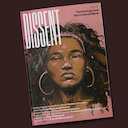
Know Your Enemy: On the Road to Reaganland, with Rick Perlstein and Leon Neyfakh
A discussion about “Fiasco: The Battle for Boston,” the weird and wild 1970s, and Ronald Reagan’s path to victory.


A discussion about “Fiasco: The Battle for Boston,” the weird and wild 1970s, and Ronald Reagan’s path to victory.

In-person, hybrid, and remote teaching all present different challenges for paraeducators.

Community and labor groups are campaigning for equal benefits for undocumented immigrants and other workers excluded from the coronavirus relief packages.

Celebrating Michael Kazin as he retires from co-editorship of Dissent.

Natasha Lewis joins Timothy Shenk as co-editor of Dissent, and eight contributors join the editorial board.

The Democrats in the House just passed a new stimulus bill, but what are its odds of passing the Senate? Rebecca Dixon of the National Employment Law Project breaks it down.

Join us on Wednesday, October 7 at 7 p.m. (EST) for a conversation on the special section of our Fall 2020 issue with its guest editors and contributors.

After a disastrous debate, we need leaders to insist that the republic and the people are bigger and more important than any president.

A preview of our Fall 2020 issue, Technology and the Crisis of Work, guest-edited by Katrina Forrester and Moira Weigel.

Three education workers talk about school reopening, and their struggle to protect their health and that of their students.

Matt and Sam are joined by New York Times columnist Jamelle Bouie for a wide-ranging discussion of how conservatives (and liberals and leftists) use American history to make political claims in the present.

The athletic strikes may have been short-lived, but they made a huge impact, disrupting the pretense of normalcy that sports entertainment normally helps viewers create.

After a plea from Governor Whitmer, nursing home workers will suspend a planned strike for thirty days while negotiations continue. The drive for collective action comes after months of stress and anguish.

As public fear rises over potential disruptions to mail-in voting in the lead-up to the election, we talk with three postal workers about what’s happening to our mail and the people who handle it.

A virtual discussion on postal banking with David Dayen, Courtney “CJ” Jenkins, Melissa Rakestraw, and Flynn Murray.